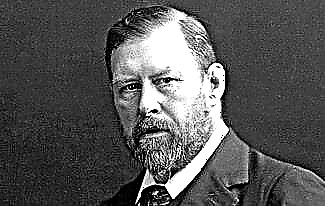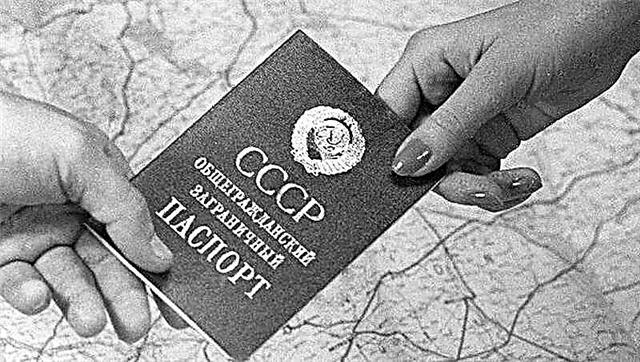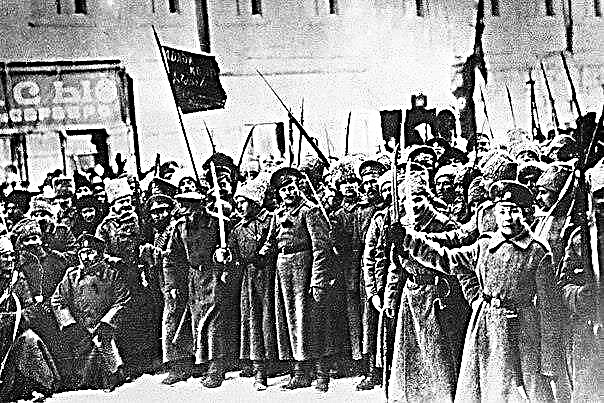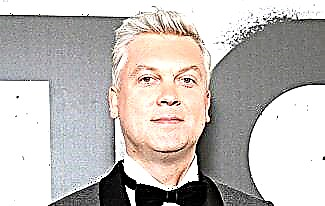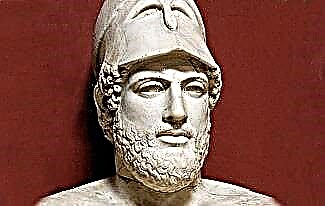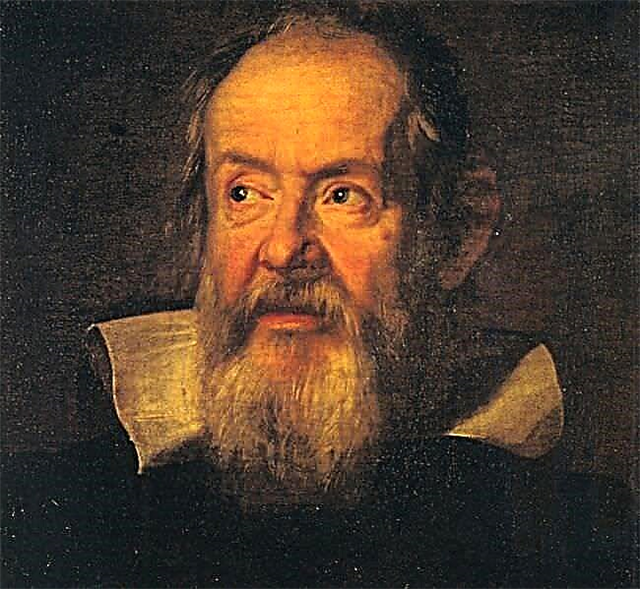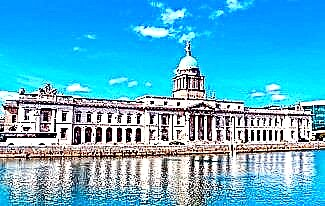Albert Camus (1913-1960) - French prose writer, philosopher, essayist and publicist, close to existentialism. During his lifetime he received the common name "Conscience of the West". Laureate of the Nobel Prize in Literature (1957).
There are many interesting facts in the biography of Albert Camus, which we will talk about in this article.
So, here is a short biography of Camus.

Biography of Albert Camus
Albert Camus was born on November 7, 1913 in Algeria, which was then part of France. He was born into the family of the caretaker of the wine company Lucien Camus and his wife Coutrin Sante, who was an illiterate woman. He had an older brother, Lucien.
Childhood and youth
The first tragedy in the biography of Albert Camus occurred in infancy, when his father died from a fatal wound during the First World War (1914-1918).
As a result, the mother had to take care of her sons alone. Initially, the woman worked in a factory, after which she worked as a cleaner. The family experienced serious financial problems, often lacking basic necessities.
When Albert Camus was 5 years old, he went to primary school, which he graduated with honors in 1923. As a rule, children of that generation no longer continued to study. Instead, they started working to help their parents.
However, the school teacher was able to convince Albert's mother that the boy should continue his studies. Moreover, he helped him to enter the Lyceum and secured a scholarship. During this period of his biography, the young man read a lot and was fond of football, playing for the local team.
At the age of 17, Camus was diagnosed with tuberculosis. This led to the fact that he had to interrupt his education and "quit" with sports. And although he managed to overcome the disease, he suffered from its consequences for many years.
It is worth noting that due to poor health, Albert was released from military service. In the mid-30s, he studied at the university, where he studied philosophy. By that time, he was already keeping diaries and writing essays.
Creativity and philosophy
In 1936, Albert Camus received his Master's degree in Philosophy. He was especially interested in the problem of the meaning of life, over which he reflected by comparing the ideas of Hellenism and Christianity.
At the same time, Camus talked about the problems of existentialism - a trend in the philosophy of the XX century, focusing its attention on the uniqueness of human existence.
Some of Albert's first published works were The Inside Out and the Face and The Wedding Feast. In the last work, attention was paid to the meaning of human existence and his joys. In the future, he will develop the idea of absurdism, which he will present in several treatises.

By absurdity, Camus meant the gap between a person's desire for well-being and peace, which he can know with the help of reason and reality, which in turn is chaotic and irrational.
The second stage of thought emerged from the first: a person is obliged not only to accept the absurd universe, but also to "rebel" against it in relation to traditional values.
During the Second World War (1939-1945), Albert Camus continued to engage in writing, as well as participate in anti-fascist movements. During this time he became the author of the novel "The Plague", the story "The Stranger" and the philosophical essay "The Myth of Sisyphus."
In The Myth of Sisyphus, the author again raised the topic of the nature of the meaninglessness of life. The hero of the book, Sisyphus, sentenced to eternity, rolls a heavy stone uphill just so that it rolls down again.
In the postwar years, Camus worked as a freelance journalist, wrote plays, and collaborated with anarchists and syndicalists. In the early 1950s, he published The Rebel Man, where he analyzed the rebellion of man against the absurdity of existence.
Albert's colleagues, including Jean-Paul Sartre, soon criticized him for supporting the French community in Algeria following the 1954 Algerian War.
Camus closely followed the political situation in Europe. He was very upset by the growth of pro-Soviet sentiments in France. At the same time, he begins to get more and more interested in theatrical art, in connection with which he writes new plays.
In 1957, Albert Camus was awarded the Nobel Prize in Literature "for his enormous contribution to literature, highlighting the importance of the human conscience." An interesting fact is that although everyone considered him a philosopher and existentialist, he himself did not call himself that.

Albert considered the highest manifestation of absurdity - the violent improvement of society with the help of one or another regime. He stated that the fight against violence and injustice "by their own methods" leads to even greater violence and injustice.
Until the end of his life, Camus was convinced that man is not able to finally put an end to evil. It is curious that although he is classified as a representative of atheistic existentialism, such a characteristic is rather arbitrary.
Oddly enough, but he himself, along with disbelief in God, declared the meaninglessness of life without God. In addition, the French never called and did not consider himself an atheist.
Personal life
When Albert was about 21 years old, he married Simone Iye, with whom he lived for less than 5 years. After that, he married the mathematician Francine Faure. In this union, the couple had twins Catherine and Jean.
Death
Albert Camus died on January 4, 1960 in a car accident. The car, in which he was with his friend's family, flew off the highway and crashed into a tree.
The writer died instantly. At the time of his death, he was 46 years old. There are versions that the car accident was rigged by the efforts of the Soviet special services, as revenge for the fact that the Frenchman criticized the Soviet invasion of Hungary.
Camus Photos









